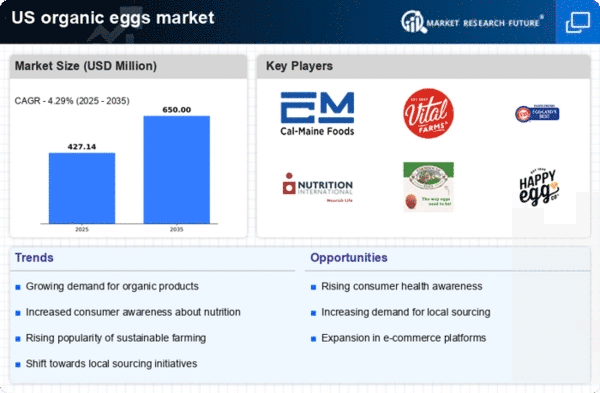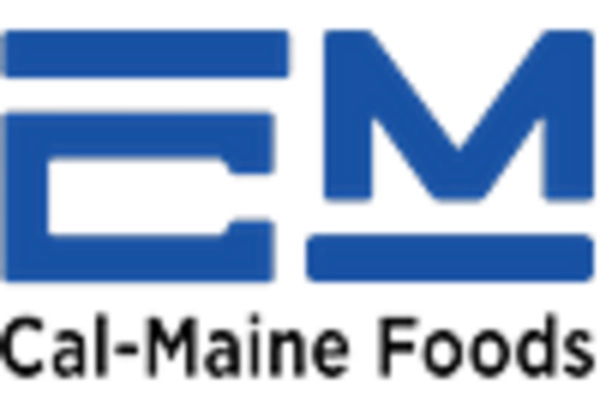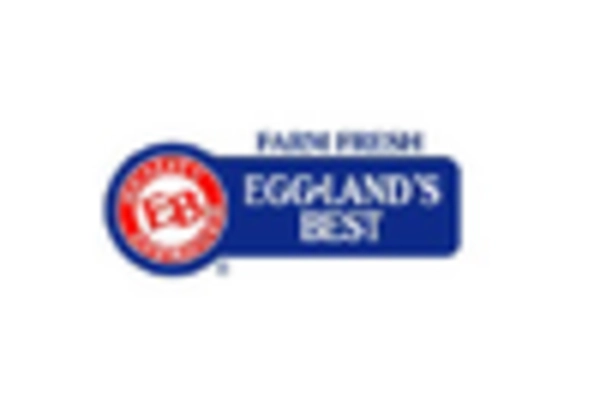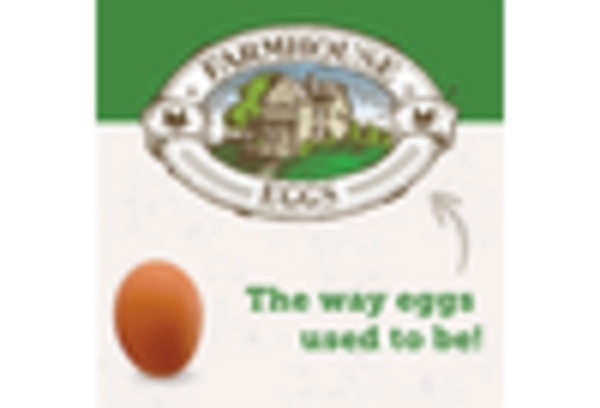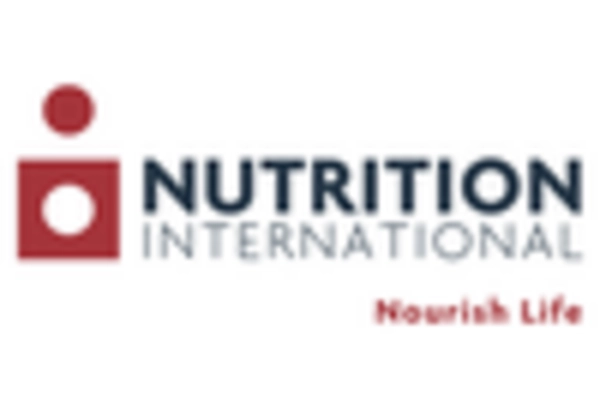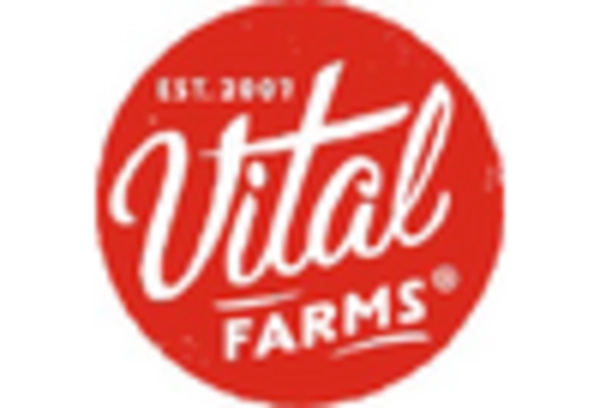Influence of Dietary Trends
The organic eggs market is being shaped by various dietary trends, including the rise of high-protein diets and plant-based eating. As consumers adopt diets that emphasize protein intake, organic eggs are often viewed as a convenient and nutritious source of protein. Recent surveys suggest that nearly 40% of consumers are incorporating more protein-rich foods into their diets, which bodes well for the organic eggs market. Additionally, as plant-based diets gain traction, organic eggs are frequently included as a complementary protein source, further enhancing their appeal in a diverse range of dietary preferences.
Impact of Food Safety Concerns
The organic eggs market is also influenced by heightened food safety concerns among consumers. Recent incidents related to foodborne illnesses have prompted individuals to seek out products that are perceived as safer and more reliable. Organic eggs, often associated with stricter safety standards and traceability, are increasingly favored by consumers who prioritize food safety. Data shows that approximately 25% of consumers are more likely to purchase organic eggs due to concerns about food safety, indicating a potential growth opportunity for the organic eggs market as it aligns with consumer priorities for safe and healthy food options.
Rising Interest in Animal Welfare
The organic eggs market is significantly influenced by the rising interest in animal welfare among consumers. Many individuals are becoming increasingly concerned about the conditions in which hens are raised, leading to a preference for organic eggs that adhere to higher welfare standards. This shift is reflected in consumer purchasing behavior, with a reported 30% of shoppers willing to pay a premium for eggs sourced from farms that prioritize humane treatment of animals. As awareness of ethical farming practices continues to grow, the organic eggs market is poised to expand, attracting consumers who value both quality and ethical considerations in their food choices.
Increasing Demand for Natural Products
The organic eggs market is experiencing a notable surge in demand as consumers increasingly gravitate towards natural and minimally processed food options. This trend is driven by a growing awareness of health and wellness, with many individuals seeking products that are free from artificial additives and chemicals. According to recent data, the organic food sector has seen a growth rate of approximately 10% annually, with organic eggs being a significant contributor to this expansion. As consumers prioritize nutrition and quality, the organic eggs market is likely to benefit from this shift, as more households incorporate organic eggs into their diets, thereby enhancing the overall market landscape.
Growth of Health-Focused Retail Channels
The organic eggs market is benefiting from the growth of health-focused retail channels, including specialty grocery stores and health food shops. These outlets are increasingly featuring organic products, catering to a consumer base that prioritizes health and wellness. Data indicates that sales through these channels have risen by approximately 15% over the past year, reflecting a shift in shopping habits. As more consumers seek out organic options, the presence of dedicated health retailers is likely to bolster the organic eggs market, providing greater accessibility and visibility for these products.


